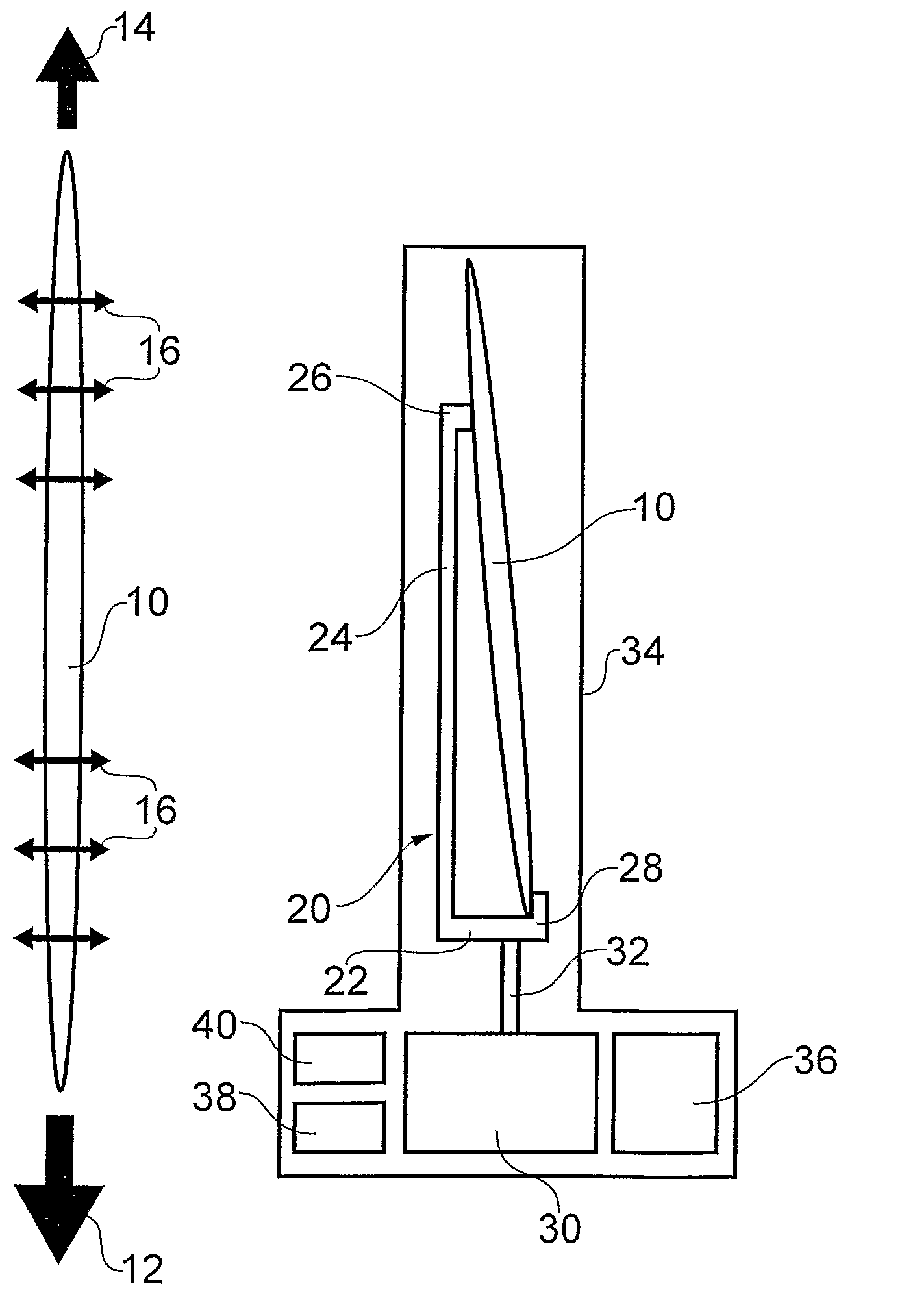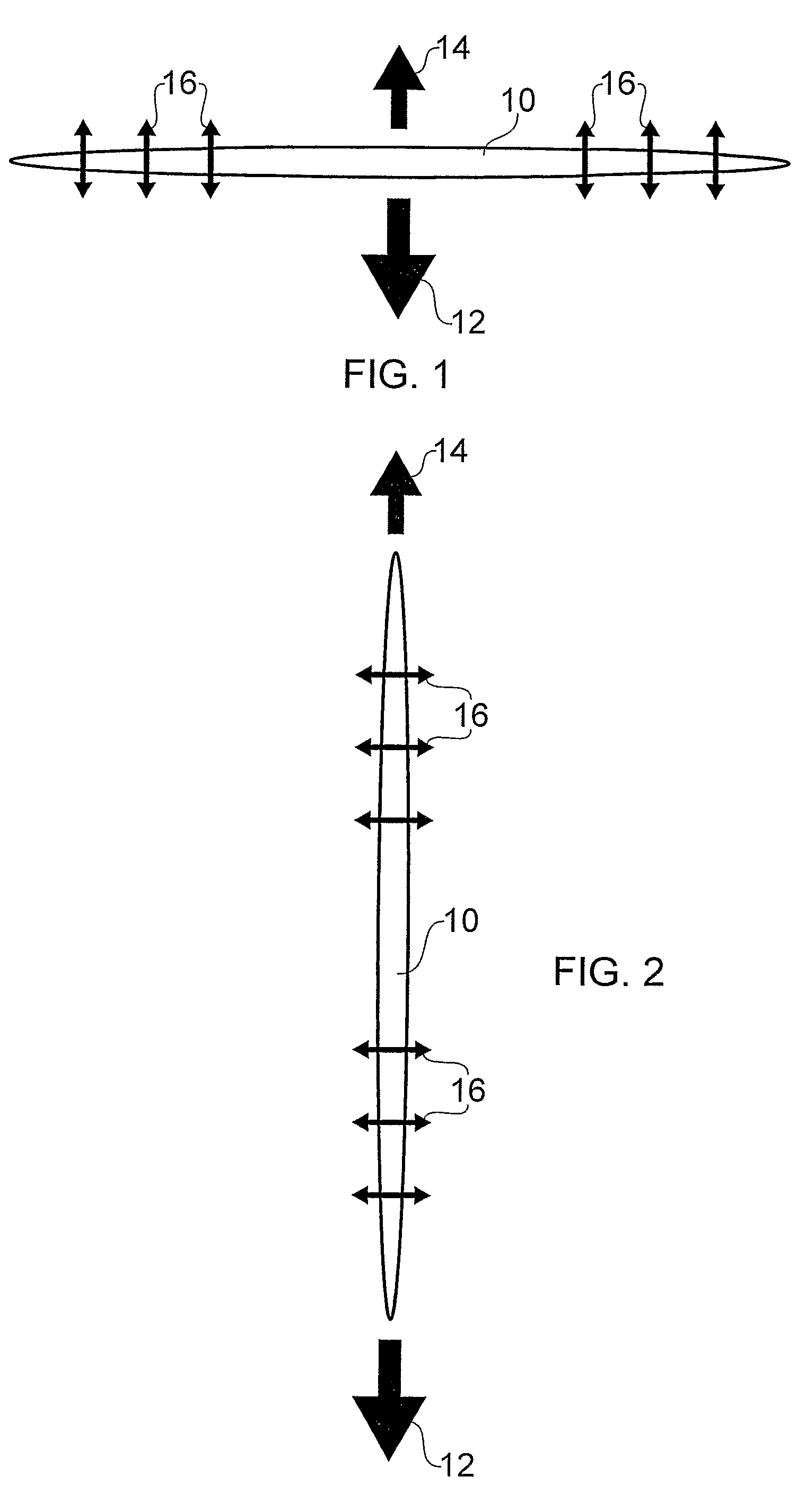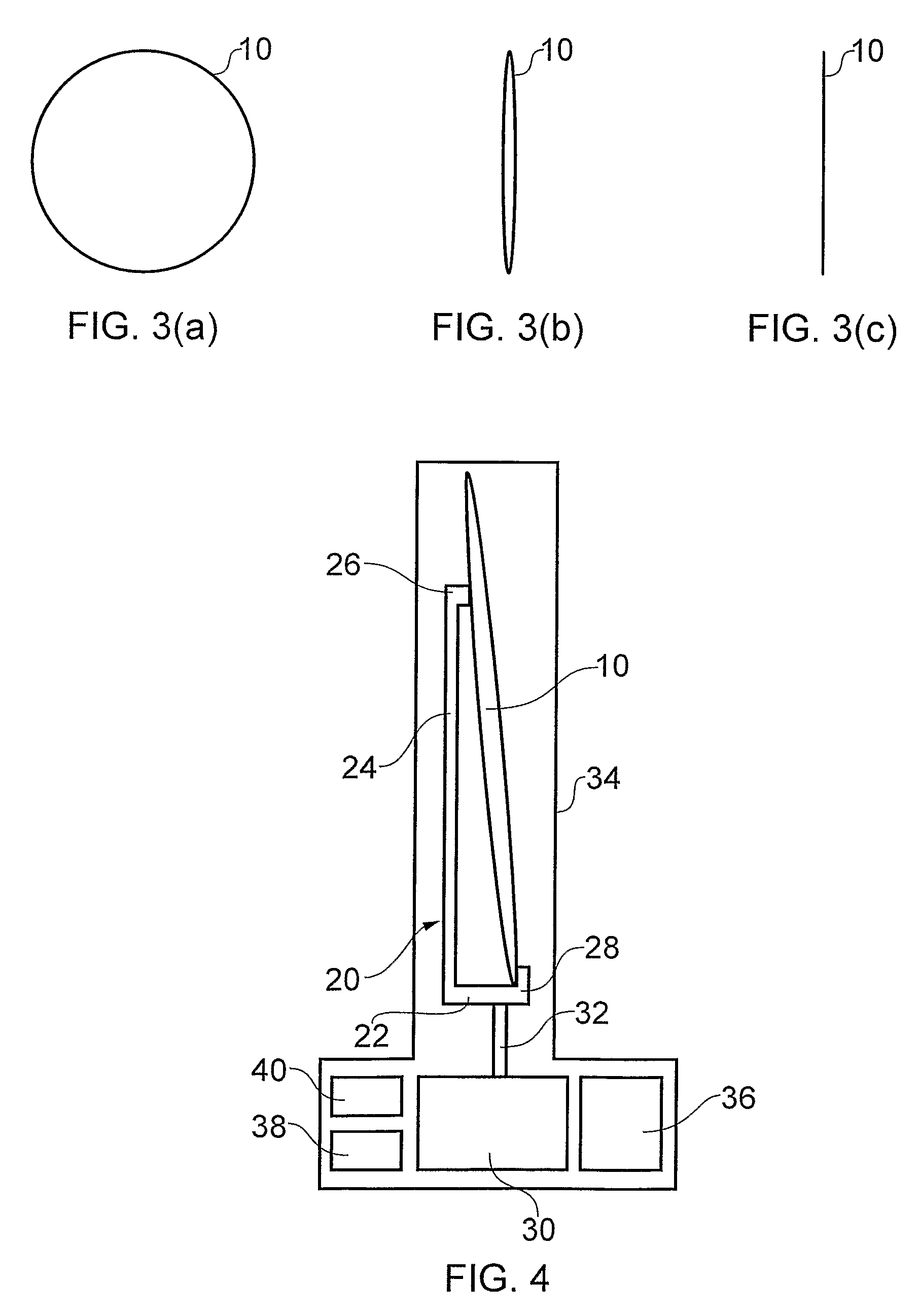Semiconductor wafer metrology apparatus and method
a technology of semiconductor wafers and metrology, applied in the field of semiconductor wafer metrology, can solve problems such as residual charge and errors, and achieve the effects of reducing air current effects, limiting effect, and reducing electrostatic force
- Summary
- Abstract
- Description
- Claims
- Application Information
AI Technical Summary
Benefits of technology
Problems solved by technology
Method used
Image
Examples
Embodiment Construction
; FURTHER OPTIONS AND PREFERENCES
[0031]FIGS. 1 and 2 demonstrate the theory behind the invention. FIG. 1 shows some of the forces experienced by a semiconductor wafer 10 in a non-evacuated chamber (not shown) during weight measurement. The weight force 12 due to gravity is counteracted by an atmospheric buoyancy force 14. This buoyancy force 14 can be detected and compensated for in a weight measurement. However, there are additional (smaller) electrostatic forces 16 which also act substantially parallel to the weight force. When the buoyancy force 14 is compensated for, these electrostatic forces 16 can cause a noticeable error in the weight measurement. The electrostatic forces 16 are caused by interaction between the walls of the chamber and the wafer. The geometry of the wafer means that these forces are predominantly normal to the plane of the wafer 10.
[0032]FIG. 2 demonstrates that if the wafer 10 is held in an upright orientation, the electrostatic forces 16 are rotated out o...
PUM
 Login to View More
Login to View More Abstract
Description
Claims
Application Information
 Login to View More
Login to View More - R&D
- Intellectual Property
- Life Sciences
- Materials
- Tech Scout
- Unparalleled Data Quality
- Higher Quality Content
- 60% Fewer Hallucinations
Browse by: Latest US Patents, China's latest patents, Technical Efficacy Thesaurus, Application Domain, Technology Topic, Popular Technical Reports.
© 2025 PatSnap. All rights reserved.Legal|Privacy policy|Modern Slavery Act Transparency Statement|Sitemap|About US| Contact US: help@patsnap.com



